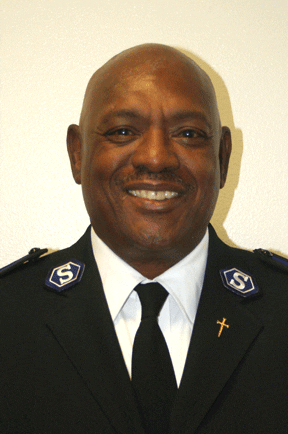
“Follow me to my car, outside the gate,” the Columbian drug buyer insisted. “We’ve got your money there.”
“No!” the young dealer retorted. “That’s not the way I do business.”
“Please, just for me,” urged the buyer. Finally, against his better judgment, at 10 o’clock on a Friday night, Johnnie Micheaux followed the other man out the door and down the sidewalk of the gated community. In the glimmer of a streetlight, he caught the glint of the knife behind him the instant it came down. Flinging out an arm, Johnnie barely deflected the knife blade from his chest, but it impaled his neck.
As the hit men sped away, they left Johnnie groaning on the ground, blood spurting from his neck. Trying his best to squelch the flow with his hands, he fled home. Throwing open the door, he screamed to his inebriated friends inside: “Call an ambulance! Help!”
Members of the Columbian drug cartel had thought Johnnie was stealing drugs from them, though he wasn’t. Such near-death experiences were part and parcel of his world of fast money and all-night parties, a lifestyle he found almost impossible to quit.
Johnnie doesn’t blame his choice of the criminal lifestyle on his upbringing. Born in 1951, he grew up in West Los Angeles and Watts, the oldest of three children in an intact middle-class family. His mother was active in the local Baptist church and sought to instill Christian principles in her children.
Johnnie was a good student, a high school athlete. It was not until he took his first drink in his senior year that hints appeared of what was to come. “A shy kid, I had a new-found source of courage,” he remembers. “When I drank, I felt in control. It excited me.” He continued on to college where he majored in physical science but also discovered marijuana, LSD and cocaine.
In his second year he fell in love with a cheerleader. When she became pregnant, they married, and Johnnie left college for a job doing precision assembly for the space shuttle. He later studied electrical science and went to work for Hughes Aircraft.
Johnnie worked hard throughout the week, but he drank and used cocaine and marijuana on weekends. As the marriage grew rockier, he began buying drugs for friends, and a day came when the drug using and dealing took priority. In 1975 his wife left him.
Now Johnnie was a full-time drug dealer—with a full-blown addiction to the lifestyle. Awaiting a judge’s decision on a drug possession charge in 1978, he sat with his mother outside the courtroom. “You’re going to have to save yourself now, Johnnie,” she said. “I raised you in such a way you should know what you’re doing is wrong. I know you’re going to slither out of this case, but I want to know one thing: Are you going to stop? And will I ever see you as the son I raised?”
“I crumbled inside. I felt so horrible,” Johnnie remembers. “I told her: ‘Oh, yes! I’m going to stop!’ But the truth was I couldn’t stop. I was on hock for a lot of drugs I had fronted and lost. I had to pay my debt off; otherwise I was a dead man.” The lifestyle continued decades longer.
It wasn’t until 2005 that he was arrested again—this time on a rock cocaine possession charge. That year while he was court-ordered to a State Residential Substance Abuse Program in Banning Prison, Johnnie’s mother died, and because he was considered a flight risk he was not permitted to attend the funeral, which broke his heart. Two years later, seeking help, he checked into The Salvation Army Adult Rehabilitation Center (ARC) in Perris, Calif., but shortly after finishing the program, relapsed. “I soon found myself burglarizing stores and sleeping in my car,” Johnnie recalls. “I asked God: ‘What do you want me to do?’ The answer came: ‘You already know.’ I really did, though the devil had me blinded.” When Johnnie reentered the ARC in September 2008, he committed his life to Christ, determined to finally surrender control.
Today Johnnie works at an auction house while studying to be a broker. In December 2009, he enrolled as a soldier of the Murrieta Salvation Army corps, where he serves regularly as an usher. Each Christmas he helps out as a bell ringer. “Today it gives me a good, warm, fuzzy feeling to be of service to others,” he says. “There’s such joy in my life now. I just wish my mother knew.”











